To better understand if Taiwan can create a future for itself that follows neither the US or China, I spoke to Journalist Brian Hioe and Academic Lev Nachman. Enjoy our conversation below!
Asia Art Tours: Alex Azar’s visit to celebrate Taiwan’s response to Covid-19, in comparison to the Trump administration’s incompetency and deliberate cruelty, strikes me as absurd. For readers could you explain this paradox as you see it? Why is a Trump Administration that hates public healthcare (Azar was a former lobbyist for ‘Big Pharma’), taking a leading role praising Taiwan’s response to Covid? A nation with one of the least neo-liberal, least privatized health-care systems in the world.
Brian Hioe / Lev Nachman: The idea of “shared democratic values” is one of the key talking points used to justify American support. As you point out, the fundamental value of universal healthcare valued by Taiwanese citizens obviously clashes with the US’s lack thereof. It is well established that Taiwan’s healthcare system is one of the best in the world (see: Yeh, J. [2020, February 9]: ‘Taiwan’s Health Care System Ranks Number 1 in Online Survey’.), which is not to say it does not have its key flaws such as overworking doctors and underpaying nurses,but relative to the United States’s history of privatized healthcare it is beyond comparison.
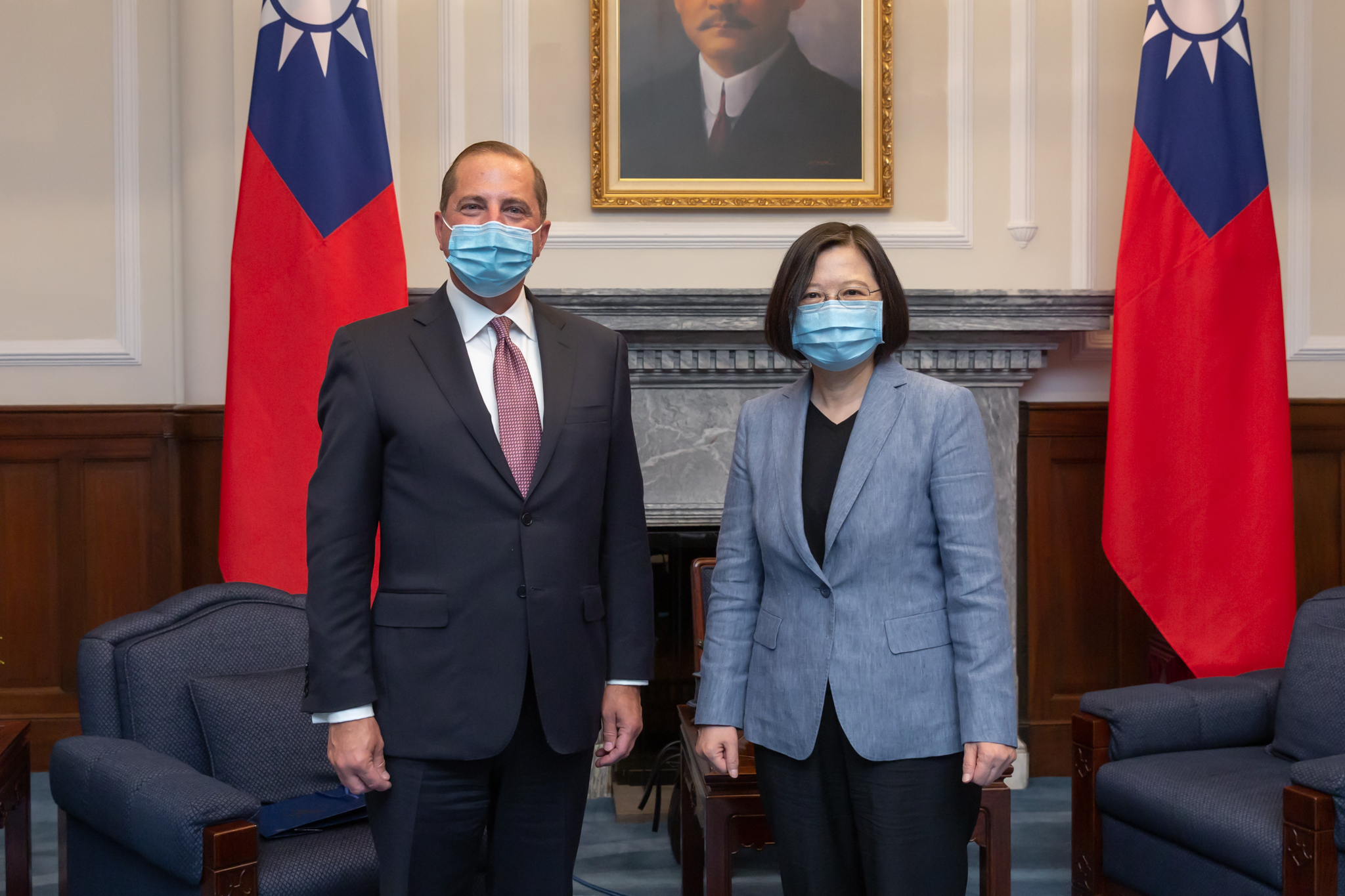
(U.S. Secretary of Health and Human Services Alex Azar poses with Taiwan President 蔡英文 (Tsai Ing-wen) on his visit to Taiwan. Photo Credit:Wikipedia)
So when an American bureaucrat who has in the past lobbied for privatized healthcare, who comes to learn about Taiwan’s world-class response to COVID-19 which is fundamentally attached to Taiwan’s universal healthcare program, how are we supposed to interpret his trip? Despite the rhetorical lines that the US came to learn from Taiwan’s healthcare system, this was far more about strengthening ties between the US and Taiwan. The tagline about exchanging healthcare policy knowledge is obviously weak, but serves as a convenient way to highlight Taiwan’s domestic and global response while also underlying the vague idea of “shared democratic ideals.”
AAT: Why for both Taiwan and Hong Kong do conservative US politicians constantly laud their democratic ideals… while suppressing these same ideals domestically, often with police violence or voter suppression (acts Taiwan and Hong Kong both have suffered)?
LN/BH: In line with the first question, it is easier for leaders like Trump to laud democratic ideals from afar than to support them at home, particularly ones that challenge power. It is not difficult to find hypocrisies between the most outspoken leaders in the United States who supposedly support Taiwan and Hong Kong and their rights to protest, critique authority, call for systemic change, while also punishing their own citizens domestically for wanting the same. Their support for these ideals abroad has far more to do with geopolitical positioning of their foreign policy than it does legitimate support. Specifically it is about signaling their clashing ideals with the PRC. Republican rhetoric of supporting Taiwan and Hong Kong based on “shared democratic support” feels shallow because really it is a veiled way of trying to stick it to the PRC without actually wanting to support those very values through actual policy at home.
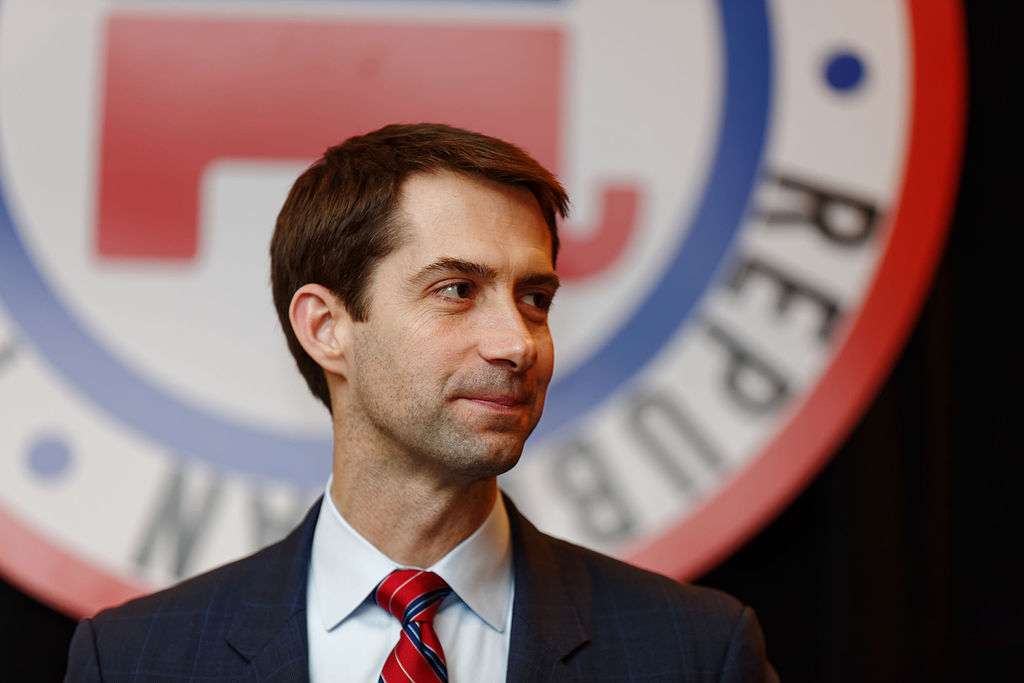
(U.S. Senator Tom Cotton is one of many far-right senators who’ve spoken in support of Hong Kong’s Protesters, while advocating violence and hate against Black Lives Matter Protesters. Photo Credit: Wikipedia )
AAT: Lastly, what harm does it do to Taiwan (in the long run) or Taiwan citizens to accept these hypocrisies without pointing them out or building solidarity with those who have been wronged by these same conservative politicians in the United States? Is the Faustian bargain of accepting Conservative help, worth it for Taiwan? Or does that Bargain come with to high of a cost in the long run?
LN/BH: I feel it is important that those on the left try to empathize with those in Taiwan and Hong Kong who do accept support from Republican politicians instead of blaming them or accusing them of ignorance. Many here are aware of leaders like Trump’s obvious hypocrisies and harms he has caused. But for many Taiwanese and Hong Kongers, they feel such a sense of dread and doom that they are desperate for any friend they can possibly find. It is very “enemy of my enemy is my friend” mentality.
Personally I feel this is not a sustainable path in the long run. The very authoritarian tendencies that threaten and cause violence in Taiwan and Hong Kong are the same kinds of authoritarian tendencies being pushed by many of these politicians back in the US. It is these kinds of deep flaws in support from the Trump administration that need to be highlighted in order to show that Taiwanese and Hong Kongers need better friends. Creating alliance networks between other marginalized countries around the world who share Taiwan and Hong Konger’s fundamental ideals will go much farther in the long run than relying too heavily on politicians like Trump who would absolutely hate the way Taiwanese and Hong Kongers participate in politics despite his rhetorical support.
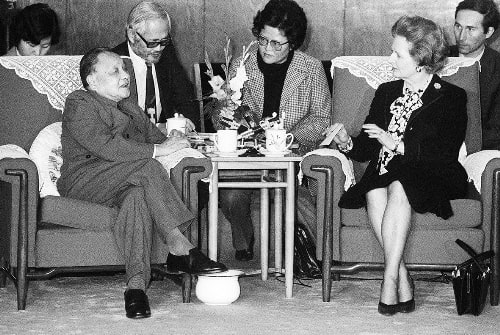
(Deng Xiaoping and Margaret Thatcher meeting over Hong Kong. Both were enamored with Milton Friedman, should be viewed (along with Regan) as the Global Fathers and Mother of Neoliberalism and ‘No Alternative’. Photo Credit: Duke University)
AAT: I think for a generation of Western leftists who grew up in the aftershocks of the Cold War, it’s still important to emphasize that unfortunately, though Thatcher may have ‘given’ Hong Kong to China, that her vision of “no alternative” to neoliberalism and the bare life of the market was already being put into place by Deng Xiaoping.
So, if we aren’t competing with two different models (communism vs. capitalism) like we ostensibly were, (with near-infinite caveats), before or during the Cold War… What are China and the U.S competing for? And does it really matter (in the long run) which of these models wins?
BH/LN: Arguably, what the US and China are competing for, in this sense, is simply global hegemony as a form of Great Power competition. However, even if both sides are in many ways mirror reflections of each other, this will be perceived as competition of two different economic models a la the Cold War. In this way, discourse regarding a new Cold War may be misleading to some extent.
It’s not clear whether some version of the same outcome would result regardless of who comes out on top, but perhaps one can see both as at different points where the construction of a surveillance state, or mass detention centers, or the use of paramilitary forces to suppress domestic dissent are concerned.
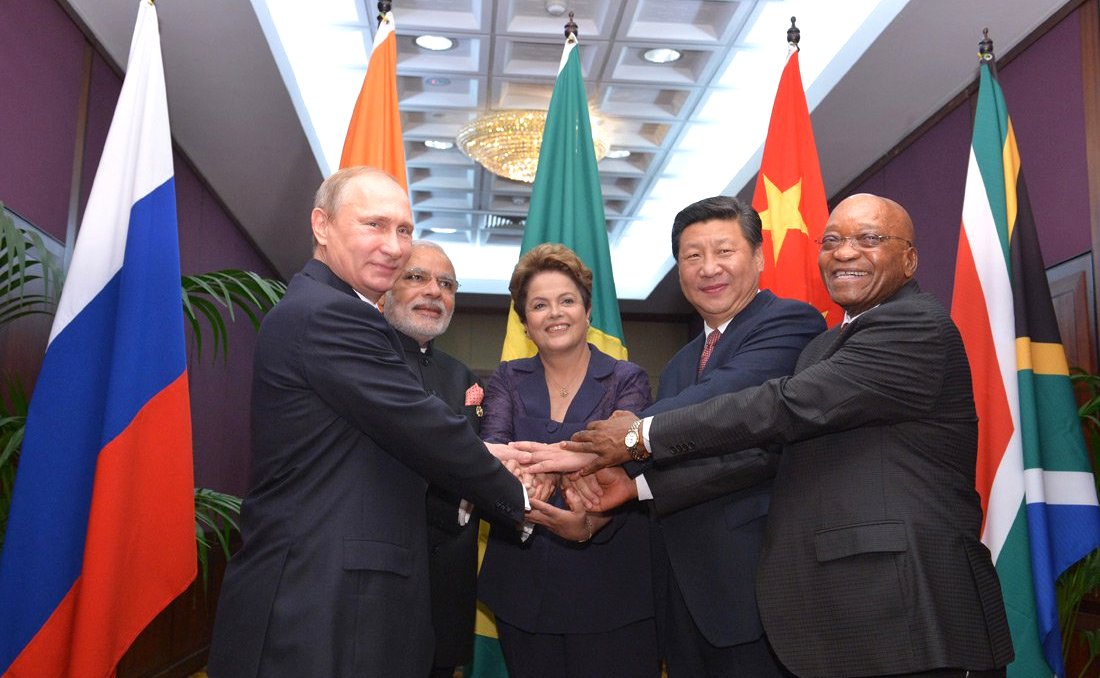
(Xi Jinping and fellow ‘BRIC’ leaders at the G20 Summit of 2015. An example of what scholar Jodi Melamed might call, Neoliberal Multiculturalism. Photo Credit: Wikipedia )
AAT: For what we’ve discussed today, no matter what happens, can we have a ‘Taiwan without Taiwan’? Should China invade, what will be impossible to erase through statecraft, or impossible to commodify through capitalism that you both find ephemeral yet essential to understanding and living through Taiwan today?
BH/LN: Everyday acts of resistance may be what is most vital in this regard, since Taiwan as an imagined community is only willed into existence by the lived daily commitment. In this sense, “Taiwan” would still exist even after a hypothetical Chinese invasion, despite the view that China often takes–that independent Taiwanese identity will fade away if Taiwan has sufficient economic incentive to identify with China, in effect the view that Taiwanese identity can be commodified away. China takes the same view regarding Uighur, Tibetan, and Hong Kong identity as well, as observed in attempts to provide financial incentives for identification with China.
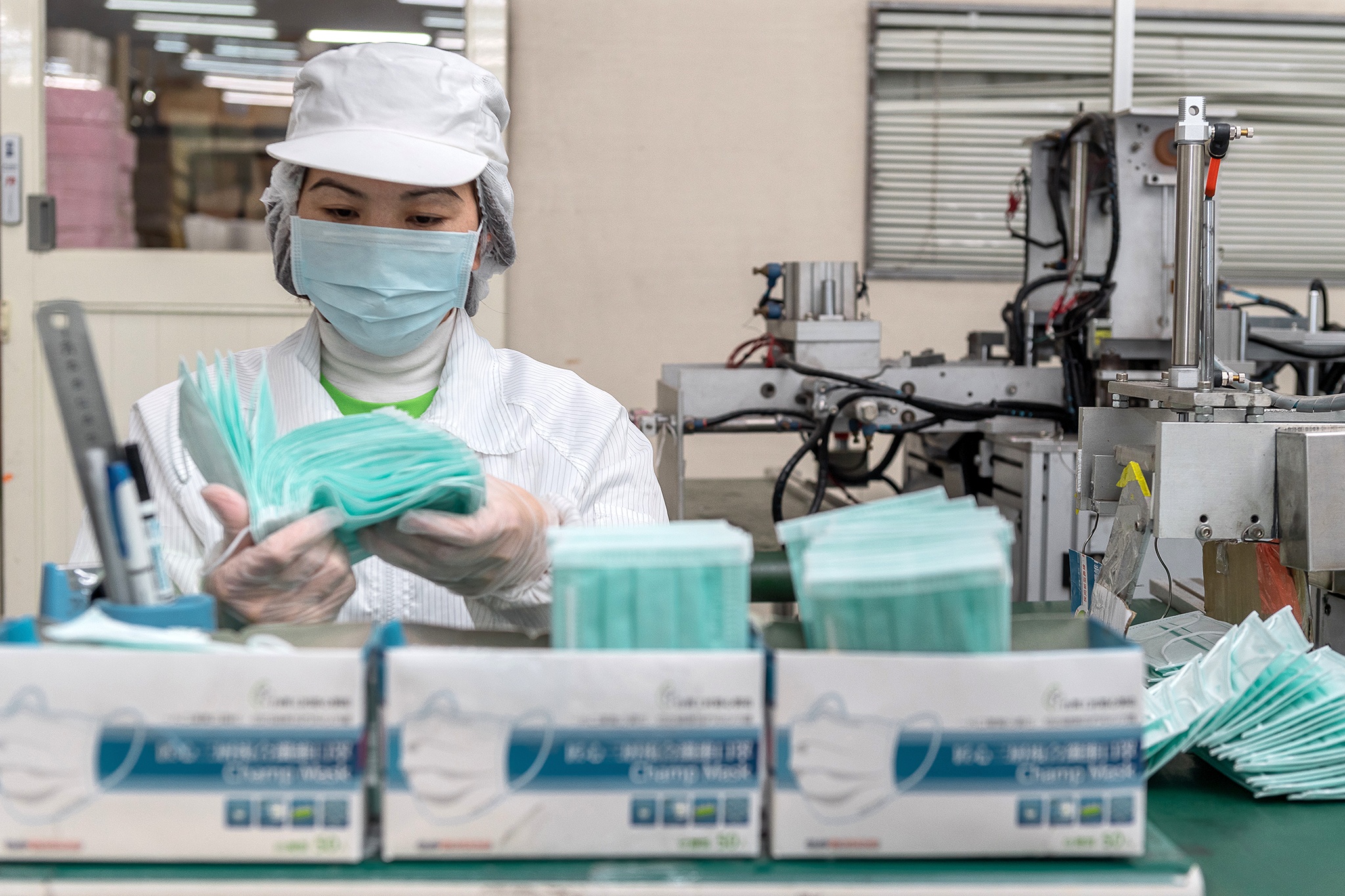
(Taiwan’s mass production and distribution of face masks, universal healthcare, and a strong centralized response from the state [over jumbled responses from private insurers in places like the US] have led to one of the world’s best results in containing Covid-19. Photo credit: Wikipedia)
AAT: Lastly (and this question has haunted me) what have your thoughts been about a Taiwan that because of it’s handling of Covid-19 has been ‘business as usual’… while acknowledging that ‘business’ (global capitalism) is both what unleashed Covid-19 and led us to the brink of global disaster between economic inequality and climate catastrophe.
In Taiwan’s ‘normal’ where do you see hope, and where (if anywhere) like me do you see cause for alarm that more utopian, disruptive or collaborative-framed arguments against the status quo of capitalism or the ‘State’ has yet to be raised, either in Taiwan or globally?
BH/LN: Taiwan’s “normal” does, in fact, have some dangers, particularly given that it was primarily the actions of the state that led to successes fighting off COVID-19, and there has in fact been backlash against individuals and groups that raised concerns about the state’s monitoring of private individuals to ensure that they do not violate their quarantines.
Will the state retain these expanded powers once the crisis passes? Will there be resistance from society, if so? In effect, that is the difference between Taiwan’s state-centered response to COVID-19 and other contexts in which civil society had to act against the state in order to respond to the coronavirus. Likewise, Taiwan evading the crisis provoked by COVID-19 has also meant not having to face the forced reckoning with global capitalism and stark neoliberal conditions that other contexts have had, with capitalist normalcy going on as usual. This is an irony of Taiwan’s successes fighting off COVID-19.
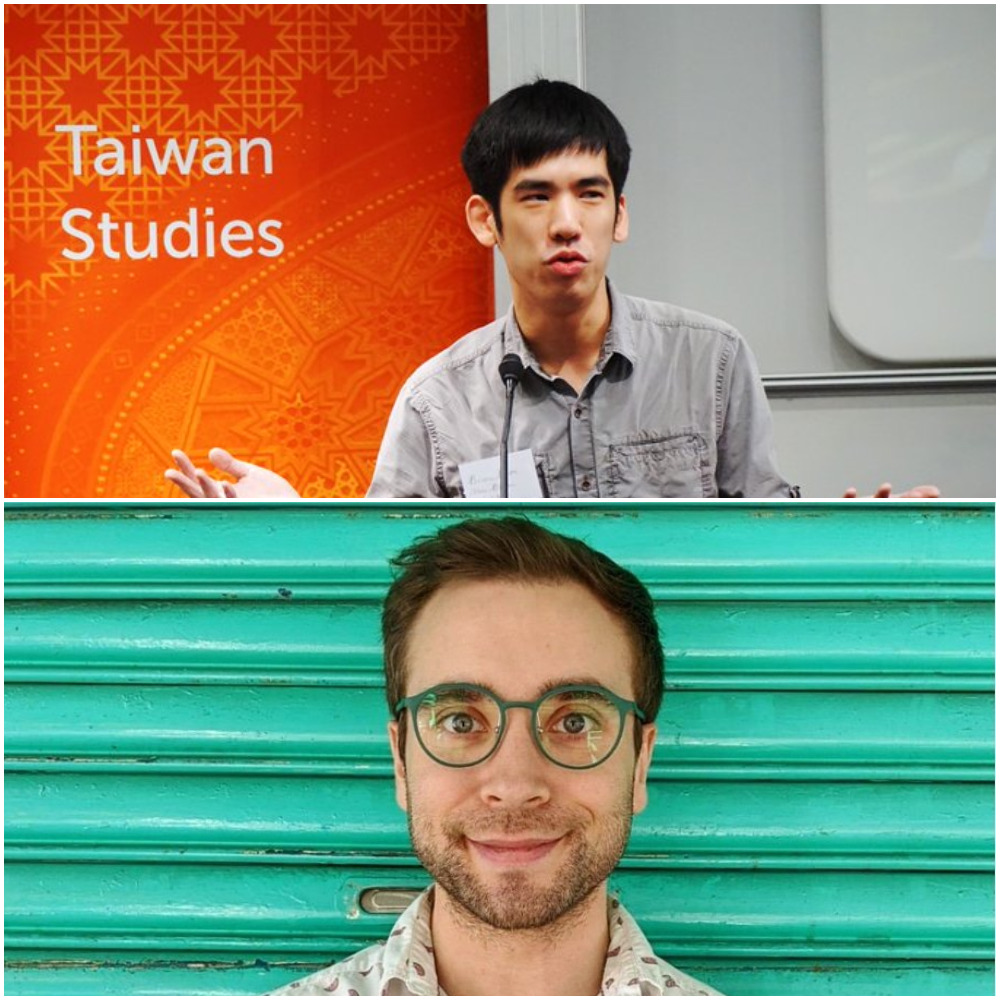
(Brian Hioe and Lev Nachman are two of the most important young voices covering Taiwan in the English Language. Follow Brian at his Magazine:New Bloom. Follow Lev on Twitter at:@lnachman32)

通話_30561066134.jpg)